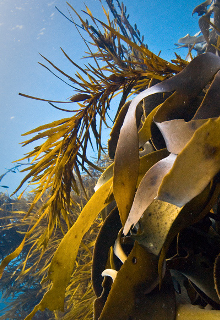Seaweed farming and sustainable development

There is widespread interest in the farming of seaweeds to address a range of global issues, including food security, climate change and ecosystem management.
A new Australian paper has delivered the first comprehensive overview of the possible opportunities and threats presented by large-scale seaweed farming. Drawing together the perspectives of expert stakeholders from across the seaweed industry, the paper discussed the potential impacts of seaweed farming on sustainability, with particular focus on the Sustainable Development Goals (SDGs) developed by the United Nations.
The in-depth study of opinions collected across a series of stakeholder workshops, concluded that seaweed farming is likely to contribute diverse benefits to a number of the SDGs, most notably SDG 2 (Zero Hunger), SDG 8 (Decent Work and Economic Growth) SDG 9 (Industry, Innovation and Infrastructure), SDG 12 (Sustainable Production and Consumption) and SDG 15 (Life on Land). It also noted that without appropriate measures in place to mitigate potential impacts, seaweed farming may not succeed in supporting some goals, chiefly SDG 14 (Life Below Water).
Researchers highlighted a range of contemporary issues that will require resolution for the success of large-scale seaweed farming. These included the development of effective management plans, farm designs, spatial allocation and regulatory frameworks. They also noted the importance of a genuine transdisciplinary approach in achieving broader success – including liaison with industry, investors, indigenous communities, stakeholders, researchers and regulators.
The full paper, “Expert perceptions of seaweed farming for sustainable development” was published in the Journal of Cleaner Production.